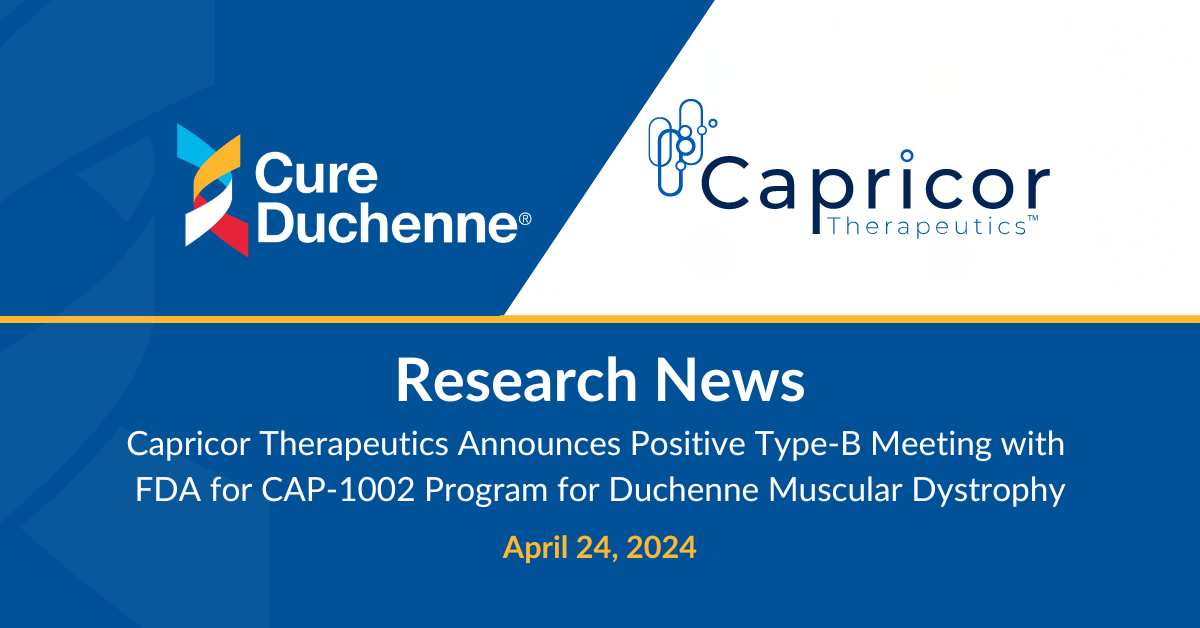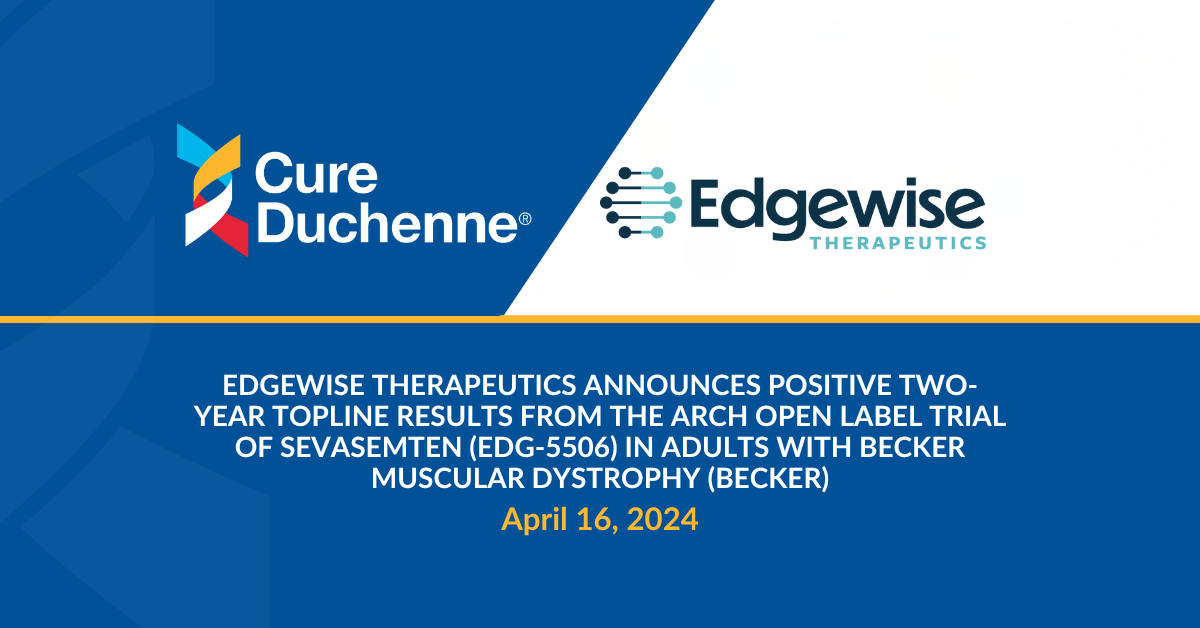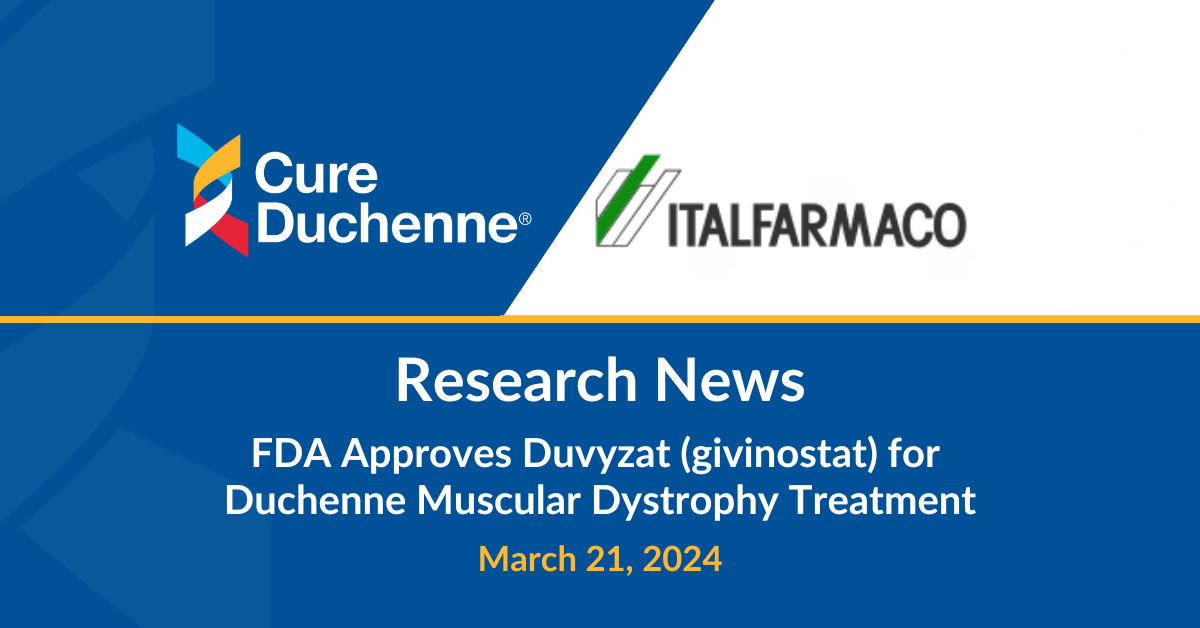FDA Grants Accelerated Approval to Sarepta Therapeutics’ SRP-9001 (ELEVIDYS) Gene Therapy for Duchenne Muscular Dystrophy
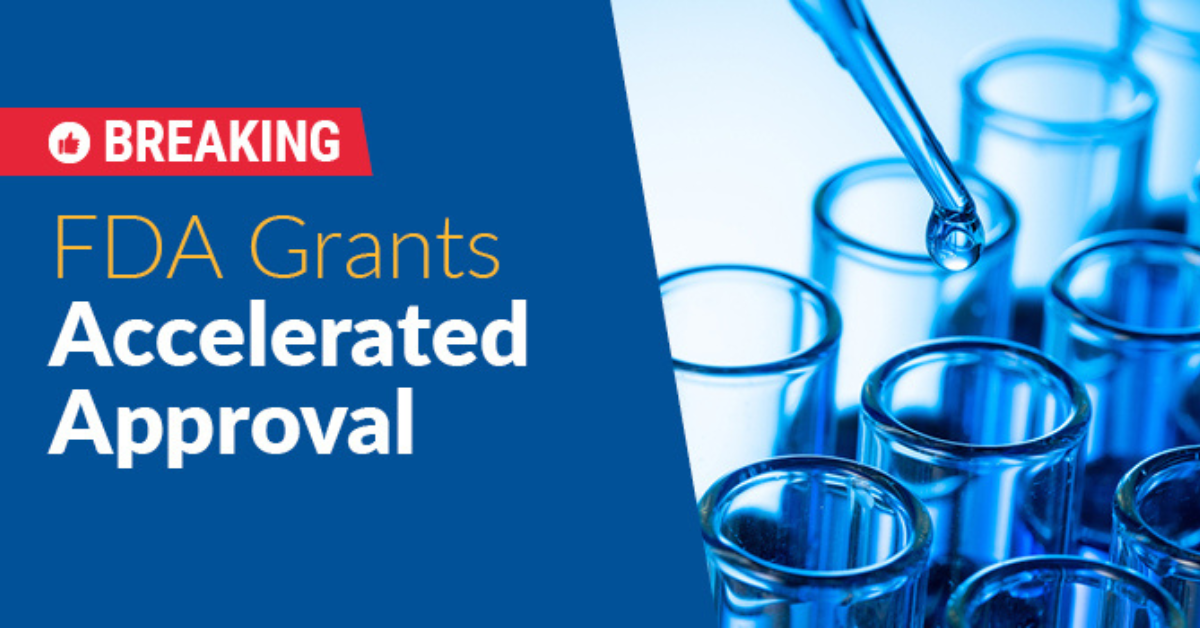
SEE UPDATE FROM OCTOBER 30, 2023 HERE
CLICK BELOW FOR A FEW WORDS FROM OUR TEAM AND SAREPTA:
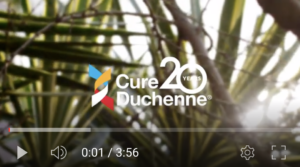
Sarepta Therapeutics’ gene therapy for Duchenne, SRP-9001, has been granted Accelerated Approval by the FDA for individuals with Duchenne ages 4-5. It’s the first approved gene therapy for Duchenne, marking an important milestone that keeps us on a path toward identifying truly transformative treatments for those living with Duchenne muscular dystrophy.
Aligned with our mission of driving early and critical Duchenne research, CureDuchenne is proud to have provided early funding to the company which later became Sarepta, helping them move forward and become the company they are today, with three FDA approved exon-skipping drugs for Duchenne and now an approved gene therapy drug for Duchenne.
While it marks important progress, we recognize this is just a first step, and that many in the community will be excluded from this treatment. We look forward to the full data readout from the EMBARK trial and expect this confirmatory study will generate important data to further inform the best clinical use of this therapy. We are hopeful it will demonstrate efficacy and safety to support an expanded label that includes older ambulatory individuals, as well as non-ambulatory individuals.
We are grateful to Sarepta for their commitment to developing therapies for rare diseases and for their tireless work in bringing this gene therapy product to fruition. We are also incredibly grateful to all of the families who have participated in clinical trials and played such an important role in advancing research. CureDuchenne has supported and committed resources to Duchenne gene therapy research from the beginning and we believe it has the potential to provide a significant therapeutic benefit for some individuals. But we are far from done. CureDuchenne has already been supporting research to overcome the challenges with this first generation of micro-dystrophin gene therapy products, and we remain dedicated to supporting the Duchenne community and researchers as we work to find further treatments for this devastating disease.
What’s next?
The FDA’s Accelerated Approval pathway has allowed this therapy to be approved much faster than traditional approval processes, with the goal of making it available to patients sooner. Under this approval pathway, the FDA has granted conditional approval to SRP-9001 (ELEVIDYS), with the requirement that Sarepta complete its ongoing Phase 3 trial (EMBARK) as a confirmatory study. All patients in the confirmatory trial are expected to be treated by September 2023, and a full readout is expected in early 2024.
With this accelerated approval, Sarepta will be able to develop a label, which includes prescribing information (dosage, eligibility criteria, contraindications, potential side effects etc.), container labeling, and instructions for patients to follow. It will also be able to market the drug. The cost of the treatment and which payers will cover the cost is still unknown.
Sarepta will also conduct an additional study (the ENVISION study) for SRP-9001 (ELEVIDYS) in older ambulatory and non-ambulatory individuals living with Duchenne that is intended to support global regulatory approval. The ENVISION study is proposed to serve as the required post-marketing confirmatory trial to verify and describe clinical benefit in the non-ambulatory population. Sarepta’s ability to bring this study to conclusion will be considered by the FDA at the time of the EMBARK study readout.
How does SRP-9001 (ELEVIDYS) work?
SRP-9001 (ELEVIDYS) delivers a small, functional copy of the dystrophin gene to muscle cells using an AAV virus, providing patients the ability to produce the micro-dystrophin protein in their muscles. This has the potential to halt/slow progression of the disease and improve muscle function in Duchenne patients. However, there are some limitations to SRP-9001 (ELEVIDYS) to be aware of. It is a one-time treatment because it is administered using an AAV virus and a patient’s immune system reacts by producing neutralizing antibodies to the virus that prohibits the administration of a second dose. Additionally, anyone who has developed antibodies through environmental exposure to the AAVrh74 viral vector used (a relatively small percentage of patients), can also not be treated with SRP-9001 (ELEVIDYS).
Looking to the future
While the approval of Sarepta’s gene therapy for Duchenne is a significant milestone, we must remember that there is still much work to be done to treat all patients in the search for a cure for this disease. Gene therapy is a promising approach but is not a one-size-fits-all solution. It is crucial that we continue to support research and development to overcome the existing challenges of gene therapy.
In that respect, CureDuchenne has been working on potential solutions so that individuals with neutralizing antibodies (nAb’s) from prior environmental exposure to an AAV may also be dosed. These strategies may also provide a path forward where redosing of individuals who have received a prior AAV therapy may also be possible. Our strategy is comprehensive, and includes funding the development of new, modified AAV viruses with improved muscle trophism (e.g. Shape Therapeutics, 4DMT) as well as other strategies to reduce the dose, improve safety, and ease the burden on manufacturing a drug product (Insmed). We’ve also supported the development of the Evader gene delivery platform (Chameleon Biosciences), which aims to shield the AAV virus from detection of the immune system, and if successful to allow dosing of patients who are seropositive to an AAV and, importantly, redosing when required.
We have also taken an early initiative to fund the development of non-viral gene delivery technologies, which not only get around pre-existing immunity to AAV, but also are not restricted by cargo size. These experimental therapies ostensibly could deliver larger gene transcripts, potentially including the full-length dystrophin protein (e.g., CODE Biotherapeutics, Myosana Therapeutics). These approaches, if successful, would also effectively address redosing concerns.
Recently, CureDuchenne has also funded four important projects:
- Insmed Incorporated: Next-generation gene therapy with a targeted delivery approach designed with the potential to address some of the current limitations of current gene therapy approaches.
- Locanabio: snRNA-mediated exon skipping program intended to restore dystrophin and improve muscle health in people living with DMD.
- MyoGene Bio: AAV-delivered CRISPR/Cas9 gene editing approach designed to produce a highly functional dystrophin transcript that would be applicable to up to 50 percent of all DMD patients.
- Collaborative Research Grant to the University of Florida: CureDuchenne, Muscular Dystrophy Association and Parent Project Muscular Dystrophy announced joint support of a project led by Dr, Barry Byrne, to test the ability of an FDA-approved drug to reduce nAbs in individuals with DMD.
Additionally, we must continue to support clinical trials and the collection of real-world data to ensure that treatments are safe, effective, and accessible to all those affected by Duchenne. CureDuchenne is committed to working towards a cure for all individuals with Duchenne, and we will not rest until everyone has access to transformative treatments.
FROM SAREPTA:
· If you have questions about accessing one of Sarepta’s approved therapies and you live inside the United States
· Please contact SareptAssist by calling Call 1-888-SAREPTA (1-888-727-3782), or emailing sareptassist@Sarepta.com
· SareptAssist is available Monday through Friday, 8:30am – 6:30pm ET
· More information about SareptAssist may be found here: https://www.sarepta.com/sareptassist
· If you have questions about the clinical development programs sponsored by Sarepta please reach out to advocacy@sarepta.com
· If you are calling from outside the United States, you should consult with your Physician for information pertinent to your care. You may email advocacy@sarepta.com and your question will be routed as appropriate
PRESS RELEASE:

